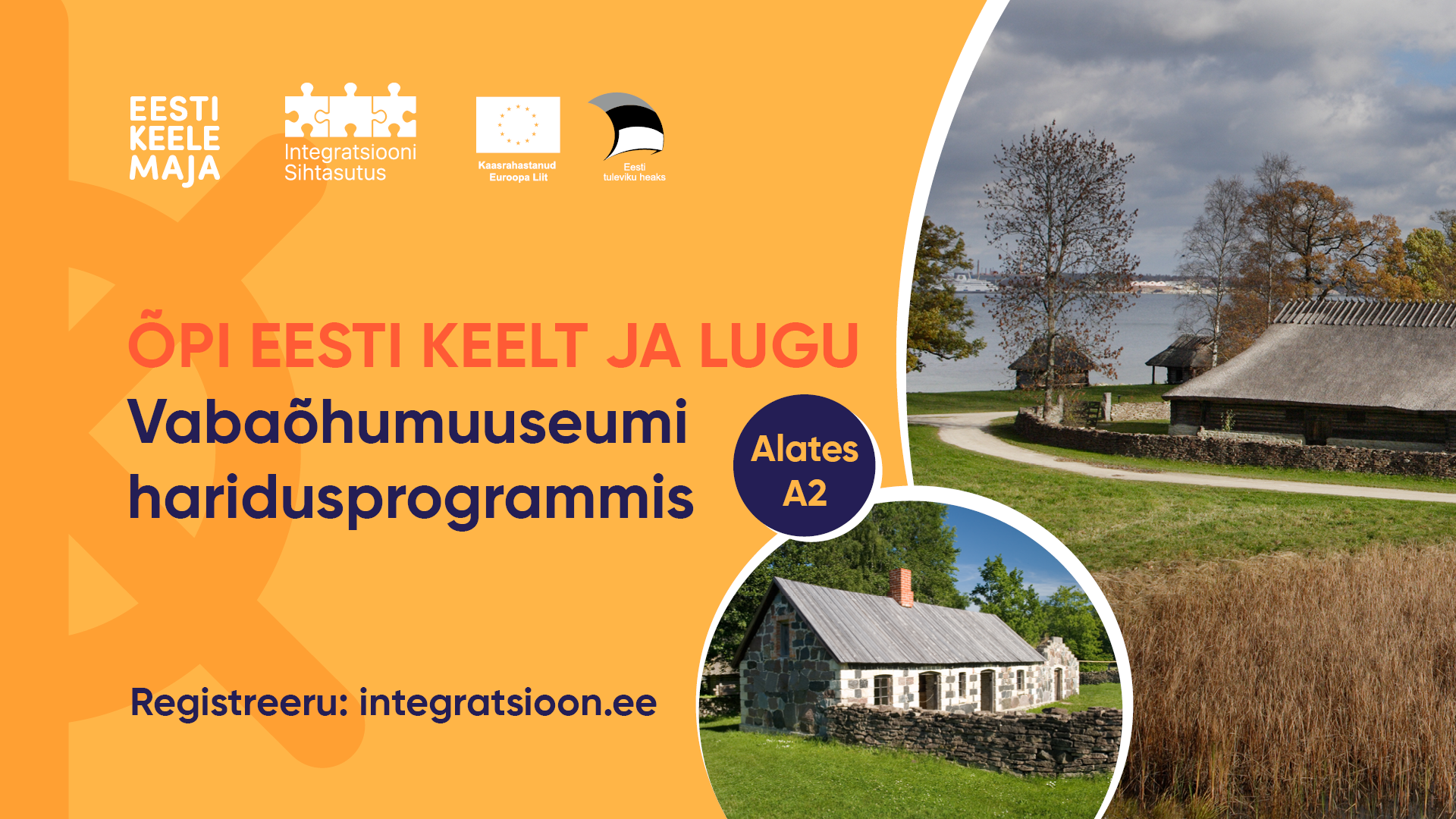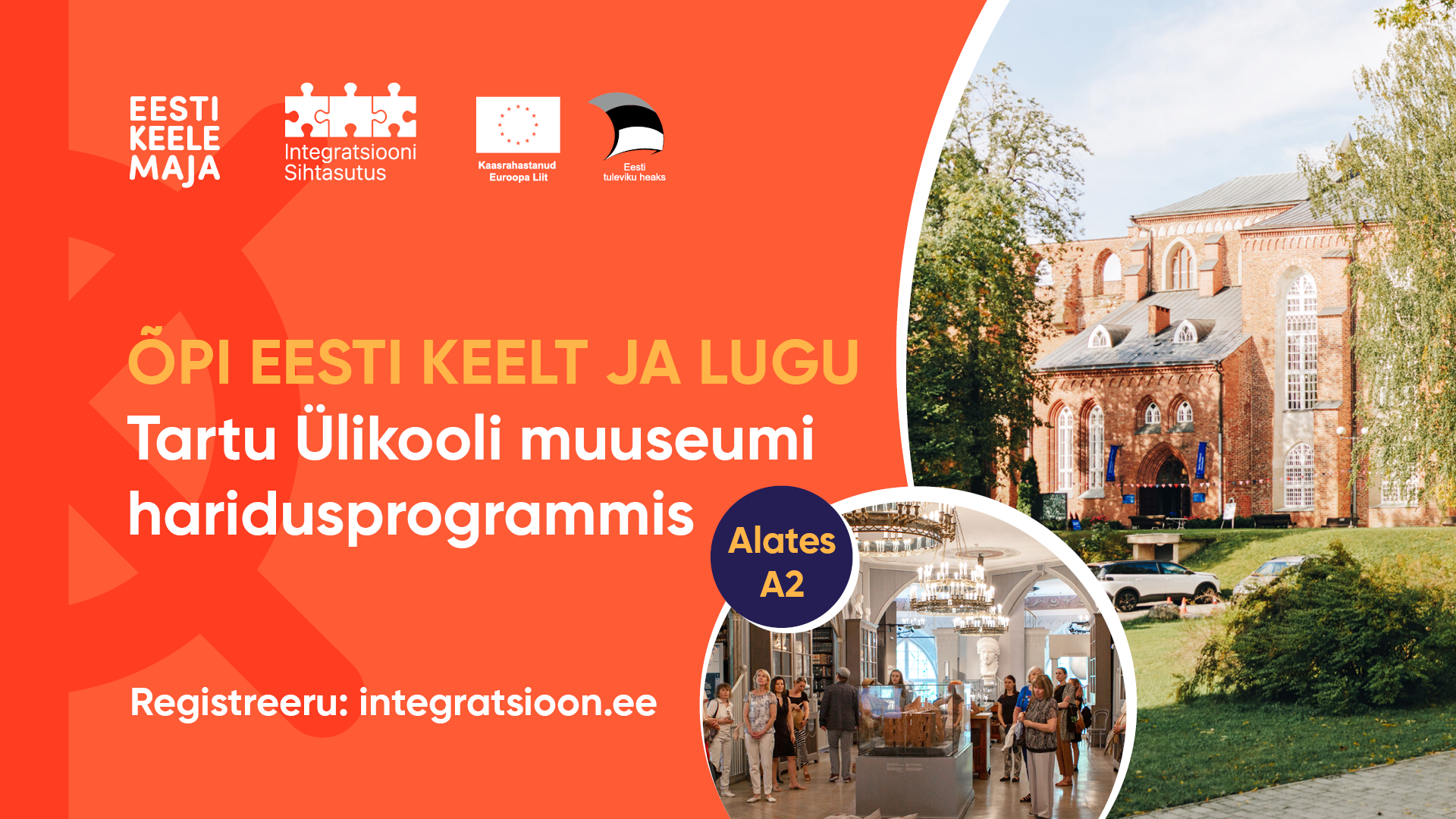This year, the Estonian Open Air Museum and the University of Tartu Museum are offering educational programmes in simple Estonian, taking place twice a month, designed to support Estonian language learning and provide practice opportunities for adults with limited language skills.
The aim of the educational programmes is to support beginners in their efforts to understand Estonian through listening and reading tasks. In addition, participants of the programme are encouraged to interact with each other through simple joint activities, inspiring them to continue learning the language.
You can sign up for the programme via our self-service: https://iseteenindus.integratsioon.ee/login
MORE INFORMATION ON THE PROGRAMMES ON OFFER
Educational programme of the Estonian Open Air Museum ‘The life of Estonians from serfdom to the restoration of independence’

The lives of the modern people are made easier and more interesting by various machines. There is a device for almost every job, and TVs, radios, and computers help to keep boredom at bay. What was the everyday life of Estonians like 200 years ago, when everything needed in life had to be created by hard work and living conditions were meagre? What did these people believe and find joy in? When did their lives improve and how did this change people’s thinking? What changes did the Soviet rule bring and what happened after Estonia regained its independence? On our trip to an Estonian village, we can get answers to all of these questions. We will compare what we see and hear with the modern day in Estonia as well as in other cultures, and discuss whether and how a modern person could manage in an old village.
LOCATION:
Buses 21 and 21b will take you to the Estonian Open Air Museum (12 Vabaõhumuuseumi Road). These buses depart from the Baltic Station. In the city centre, the relevant stops are VIRU and VABADUSE VÄLJAK. You need to get off the bus at ROCCA AL MARE. The bus stop is located just outside the museum gate. The group will gather in front of the museum’s main ticket office, and Einike Sooväli, who will conduct the educational programme, will meet the group there. From the museum, you can take buses 41 and 41b back to the city centre and the Baltic Station.
WHEN:
Twice a month on Mondays from 5.30 p.m. to 8.15 p.m.
Dates: 05/02, 12/02, 04/03, 11/03, 08/04, 15/04, 06/05, 13/05, 03/06, 10/06, 01/07, 08/07, 05/08, 12/08, 09/09, 16/09, 07/10, 14/10, 04/11, 11/11, 02/12, 09/12
PARTICIPANTS:
10–20 people
Educational programme of the University of Tartu Museum
‘The path to knowledge of Estonian culture and heritage at an international national university’

The programme discusses the importance of education. It will highlight why education and research have been important in Estonia and how they have shaped the modern Estonian society and its values today. Through different themes and areas related to the university’s past, the programme gives an overview of the core values of Estonian culture and the most important scientific achievements of the country through the ages. It explores the past, linking it to the present through real-life examples. Participants will go on a tour, complete worksheets, and practise their Estonian through various exercises.
LOCATION:
University of Tartu Museum (February–April; October–December),
University of Tartu Art Museum and the main building of the university (February–April; October–December)
Tartu Observatory (May, June, and September)
Toomemägi Hill and the botanical garden (July and August)
WHEN:
Twice a month: 17/02, 28/02, 16/03, 27/03, 13/04, 24/04, 11/05, 22/05, 08/06, 19/06, 13/07, 31/07, 10/08, 21/08, 07/09, 18/09, 12/10, 30/10, 09/11, 20/11, 07/12, 11/12
- Saturdays from 11.15 a.m. to 1.30 p.m.
- Wednesdays from 5.30 p.m. to 7.45 p.m.
PARTICIPANTS:
10–20 people
*The educational programme is funded by: the ESF+ project No 2021-2027.4.07.23-0006 ‘Activities supporting Estonian language learning and civic education’, sub-activity ‘Creation of educational programmes, including in simple Estonian, in cultural and sports institutions’.
